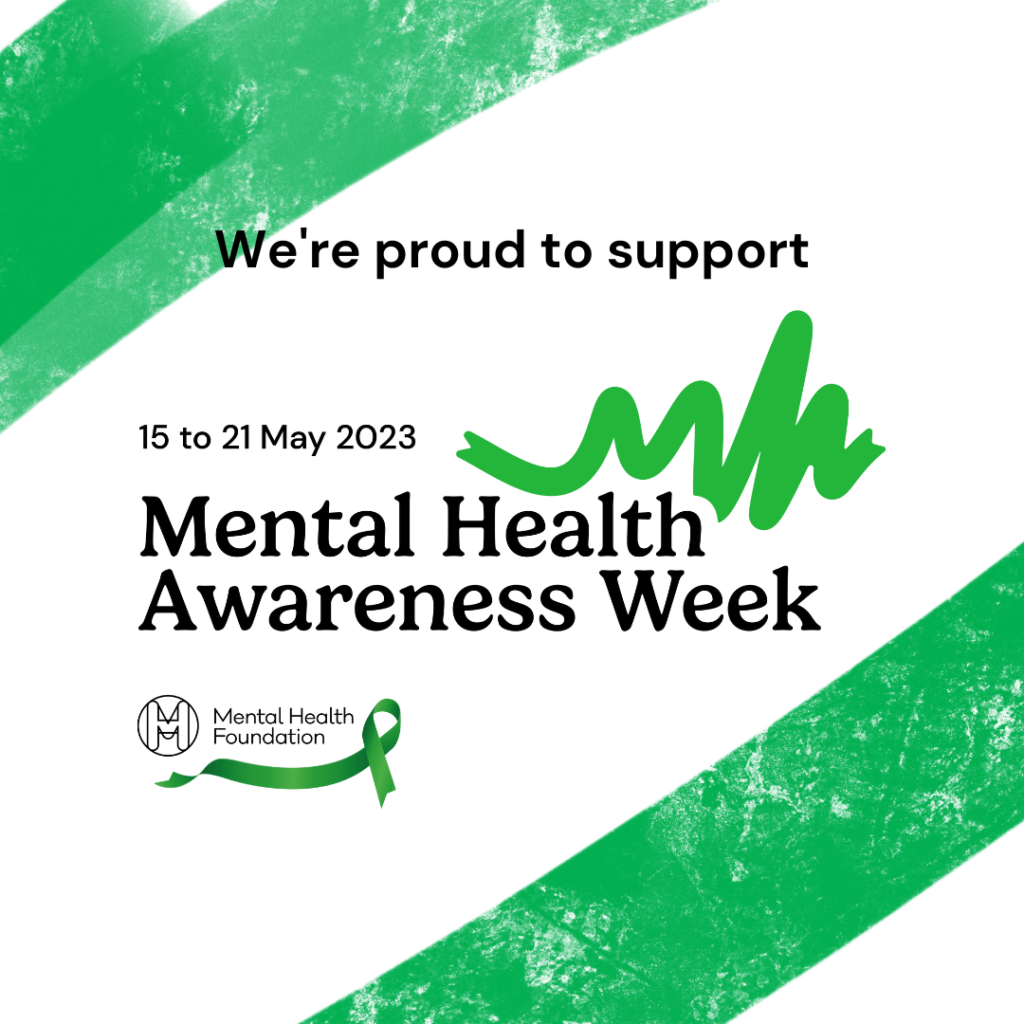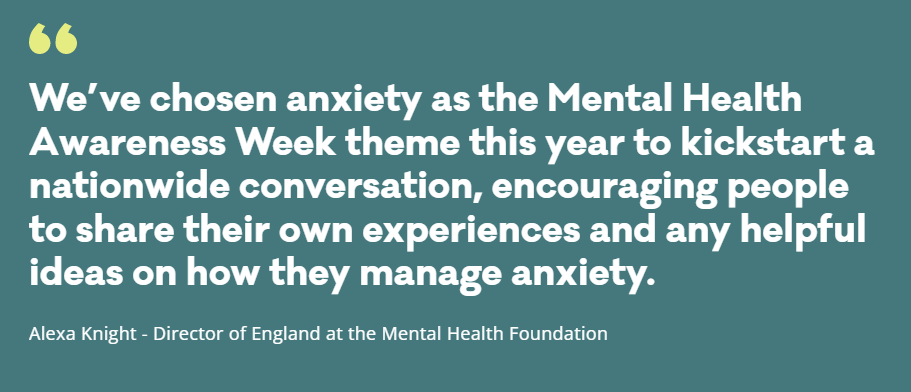The theme of this year’s Mental Health Awareness Week is anxiety.

Spotting the signs of anxiety
Anxiety is a normal emotion in us all, but sometimes it can get out of control and become a mental health problem.
When you’re feeling anxious or scared, your body releases stress hormones, such as adrenaline and cortisol.
This can be helpful in some situations, but it might also cause physical symptoms such as an increased heart rate and increased sweating. In some people, it might cause a panic attack.
Symptoms of anxiety include:
- faster, irregular or more noticeable heartbeat
- feeling lightheaded and dizzy
- headaches
- chest pains
- loss of appetite
- sweating
- breathlessness
- feeling hot
- shaking
- feeling tense or nervous
- being unable to relax
- worrying about the past or future
- feeling tearful
- not being able to sleep
- difficulty concentrating
- fear of the worst happening
- intrusive traumatic memories
- obsessive thoughts
- not being able to enjoy your leisure time
- difficulty looking after yourself
- struggling to form or maintain relationships
- worried about trying new things
- avoiding places and situations that create anxiety
- compulsive behaviour, such as constantly checking things

How to deal with your mental health and anxiety
If you know what’s causing anxiety, fear or panic, it might be easier to find ways to manage it.
Ways of controlling your anxiety include:
- Focus on your breathing
- Get moving
- Keep a diary
- Challenge your thoughts
- Get support with money worries
- Spend time in nature
- Connect with people and talk about how you feel
- Try to get some quality sleep or rest
- Try to eat a healthy diet
Useful Mental health and anxiety resources
https://www.healthline.com/health/333-rule-anxiety












